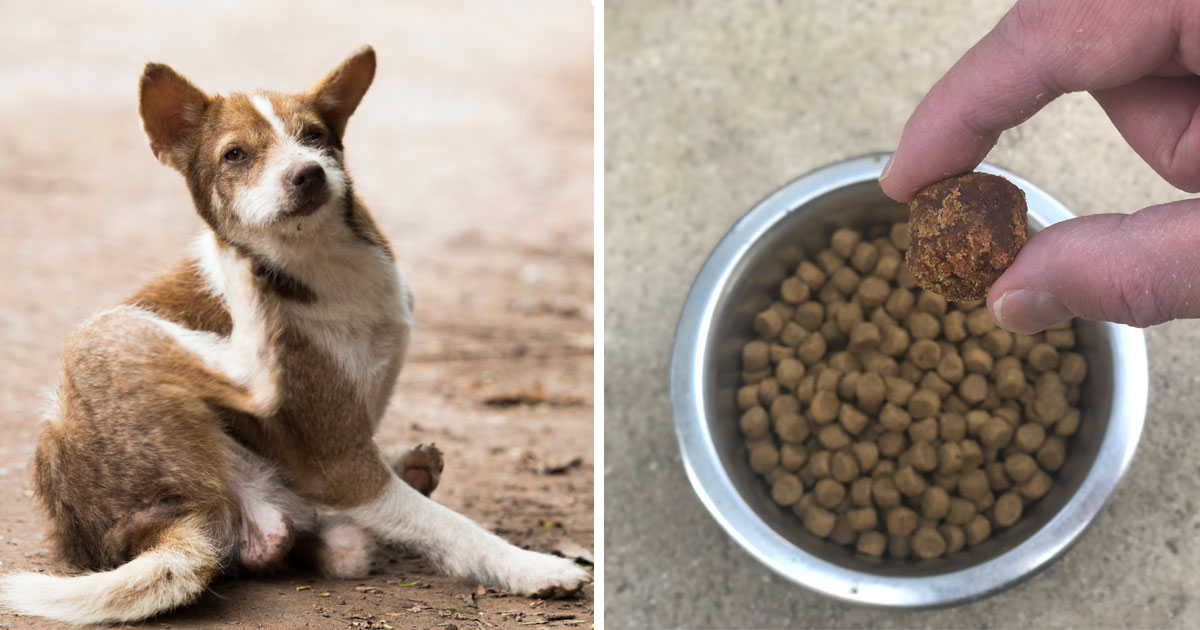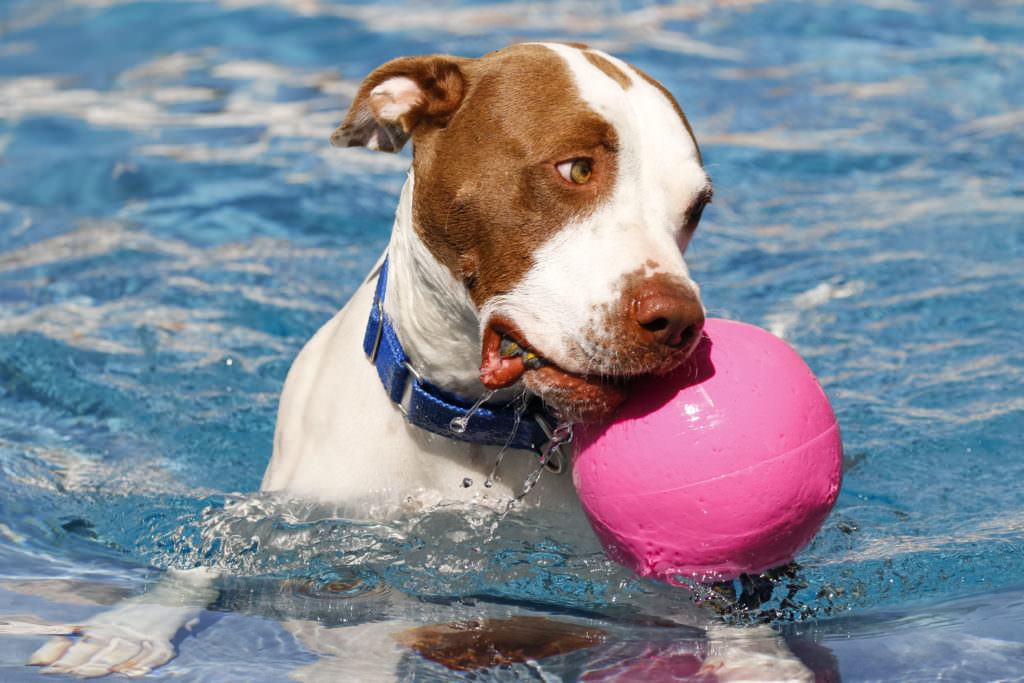
A Simple, Natural Solution for Your Itchy Dog
When the days start getting longer and the sun seems to shine just a little brighter, I know summer is approaching. More importantly, it’s pool time. Countless hours in the pool with my two favorite fur balls. In and out of the pool, chasing a ball or some improvised chew toy. Their coats hold so much water, that each time they get out of the pool, I swear I see the water level drop an inch. I love it. What I don’t love is what it does to my skin…and theirs. The water and chlorine are brutal, causing horribly dry skin. This always leads to licking. Then scratching. Then chewing. All – not good.

Medically known as canine atopic dermatitis (CAD), dry, itchy skin can be a major issue for dogs. If left untreated, it can lead to lesions, hair loss, or bacterial infections. It can be caused by a variety of factors, such as a hypersensitivity to allergens.
3 Most Common Canine Allergies
- Food
- Environmental
- Contact
Allergies are a hypersensitive and damaging response of the immune system to external allergens, such as pollen and food. It’s the same for humans and dogs. However, with dogs the signs and symptoms may go unnoticed because our furry friends can’t tell us what’s wrong. So as the leader of the pack, we need to be hyperaware of what to look out for.

Common Signs of Canine Allergies
- Scratching and biting on skin
- Excessive licking
- Watery eyes
- Paw chewing or licking
- Nasal discharge
- Breathing problems (very serious!)
Fortunately, there are many ways to help boost your dog’s immune system and fight the itchy and dry skin. Some studies have shown promise with Omega-3 supplementation in the diet of dogs suffering from allergies. And although simply giving your dog a supplement is unlikely erase the symptoms, (always consult your vet for a complete treatment plan) there is pretty clear evidence that Omega-3 fatty acids provide benefits to the immune system, and many dogs are in fact deficient in Omega fatty acids due to the fact that dog’s cannot produce them on their own.
A Problem: Dogs Can’t Produce Vital Omega Fatty Acids
There are many sources of Omega fatty acids. Some believe that dog food delivers all the dog needs. Unfortunately, because Omega’s are susceptible to heat, most of the benefits become biologically unavailable to your dog due to the cooking/treatment temperatures of dog food. This is why many dog owners have turned to a supplement to provide their dog’s daily needs of essential fatty acids.
My dogs love our Omega-3-6-9 Select chews from Project Paws. I like them because they’re made from krill, which have some of the highest concentrations of Omega’s of any marine animal. Also, because these are tiny creatures with a shorter lifespan, they don’t contain the high level of toxins like fish. They’re also available in two sizes: one for small and large dogs. I love them because like all of our products sold on iHeartDogs.com, each purchase of Omega-3-6-9 Select chews provides meals for 14 shelter dogs!
The key to remember: Your dog needs Omega fatty acids (supplement, fish meat, whatever the source). So whatever you choose, just make it part of a healthier, happier lifestyle for your dog. It definitely made a splash with mine. Or was that the pool?
These statements have not been evaluated by the Food and Drug Administration. This product is not intended to diagnose, treat, cure, or prevent any disease. The information on this website is not intended to replace a one-on-one relationship with a qualified health care professional.
The post Dropping This In Your Dog’s Food Bowl Could Help With Painful Skin Itchiness appeared first on iHeartDogs.com.

Be the first to comment